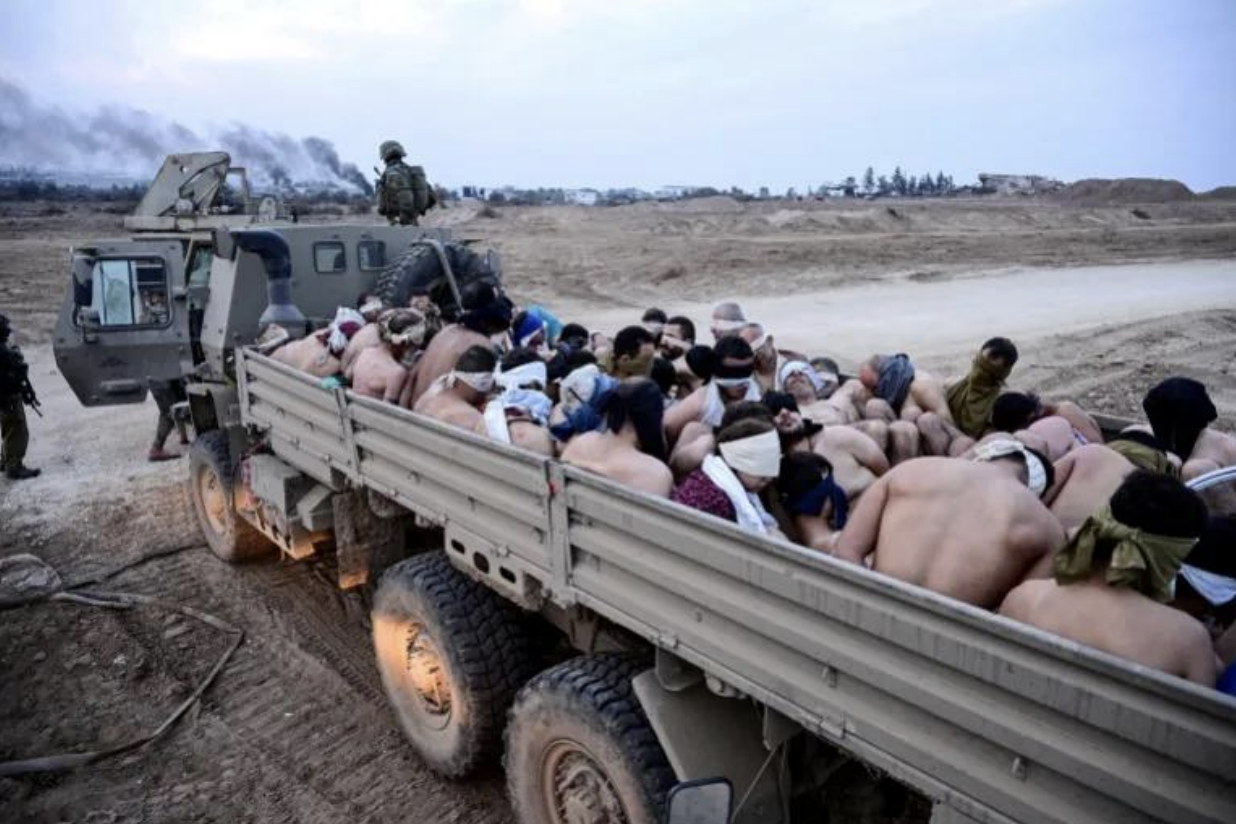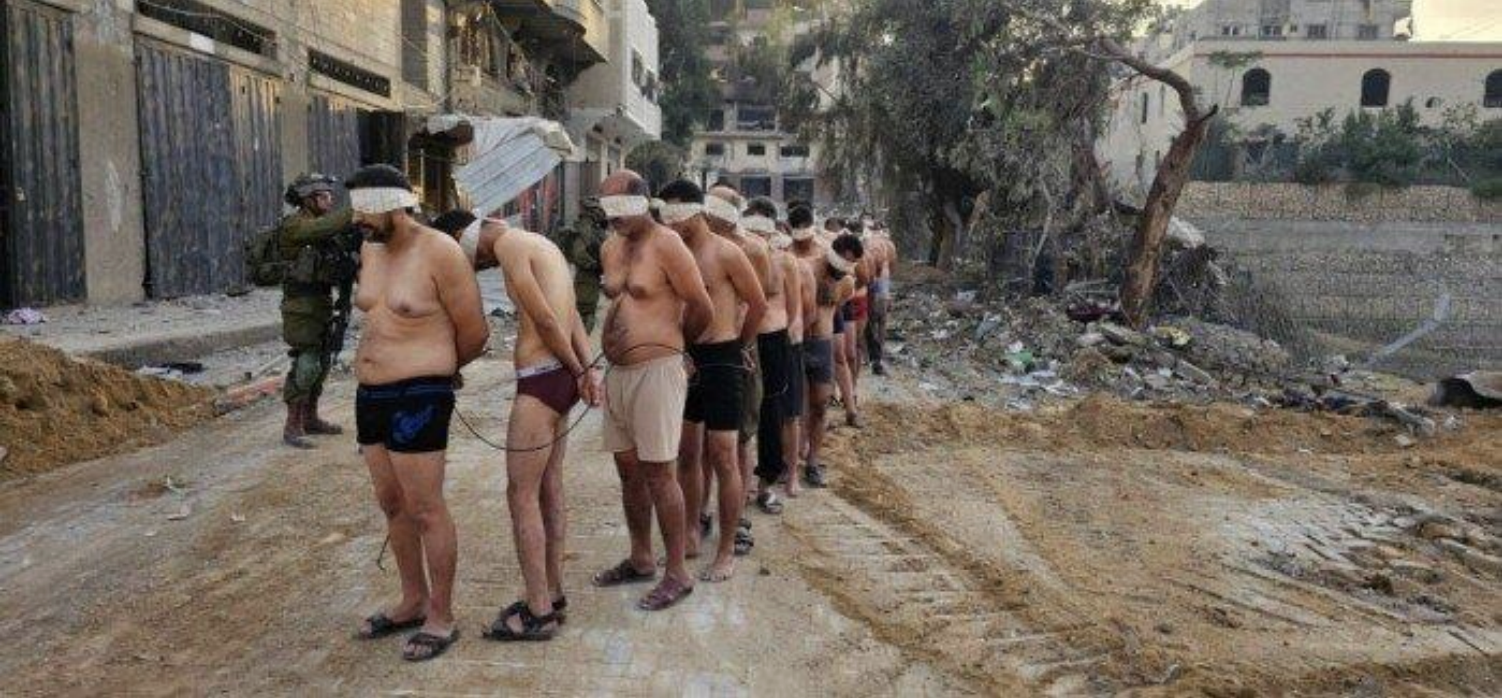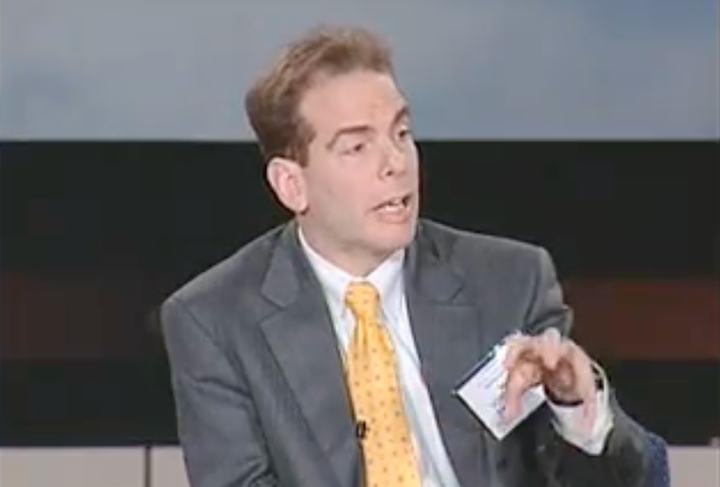'Slow Torture': Israel's Detention Of Palestinian Journalists
"Journalists have endured a suffering that future generations will never forget," says Palestinian Journalists Syndicate President Nasser Abu Bakr

The following article was made possible by paid subscribers of The Dissenter. Become a subscriber and support independent journalism on press freedom.
The Israeli government's targeting of Palestinian journalists encompasses more than just killing them. It also includes humiliation, psychological terror, torture, and abusive detention.
A report [PDF] from the Palestinian Journalists Syndicate (PJS) identifies 125 Palestinian journalists, who have been imprisoned by Israel since October 7.
Nasser Abu Bakr, who is the president of PJS, said he has heard from both male and female Palestinian journalists. “They speak of beatings with sharp objects, prolonged hanging, forced stripping, attempted rape of both male and female prisoners, and death threats. It is slow torture, carried out over hours, days, and sometimes months."
“These are the conditions in which over a hundred journalists, who are supposed to be protected by international law, have lived while trying to carry out their professional duties."
Diaa Al-Kahlout, a father and the director of the Al-Arabi Al-Jadeed office in Gaza, was held at the Zkayim detention center for 33 days. He told Al-Arabi TV, "From the moment of my arrest, I identified myself as a journalist, hoping the investigators would respect my profession. However, the occupation soldiers immediately took my press card from the Palestinian Journalists Syndicate and broke it.”
“Several soldiers gathered around me, and during interrogation, their questions focused solely on my 'crime' of being a journalist."
When Al-Kahlout was arrested, Israeli military forces “forcibly” led the journalist “naked along with dozens of other citizens” from his family home in the Beit Lahia Housing Project. Soldiers filmed and photographed him standing naked in the middle of a nearby market. The images were shared publicly to further humiliate him.
Ali Abu Sharia, a Palestinian journalist from Gaza City, was detained by the Israeli military on January 25. “Like sheep,” Abu Sharia and fifty to sixty other detainees were thrown into trucks on top of each other. “We were naked,” Abu Sharia said, and upon arrival at a detention center, soldiers beat him all over his body.

In testimony to PJS, journalist Ikhlas Sawalhah, who was detained on December 12, 2023, said female Israeli soldiers beat her severely “after they forced her to undress.” (Her husband—journalist Ibrahim Abu Safiya—remains in detention.)
Roz Al-Zarou, a journalist based in Jerusalem, said that Israeli security forces “stormed her home” on September 9, “causing a state of terror and intimidation for her family, especially her young child.” Her home was ransacked. “The occupation soldiers confiscated all my press cards (Palestinian, international, and Israeli), as well as my passport.”
Israeli security forces took Al-Zarou to the Moscobiyeh detention center. She was subjected to “harsh interrogation” for a day and then released on bail ($1,600). Al-Zarou was forced to live under house arrest for eight days.
Two photojournalists, Nidal Al-Wahidi and Haitham Abdul Wahed, were forcibly disappeared, according to PJS. Their whereabouts remain unknown, and the Israeli authorities refuse to grant their lawyers or any international organizations access to them. Both were detained on October 7, 2023.
The PJS report states, “Enforced disappearance increases the suffering of prisoners and their families, as it becomes difficult for families to obtain any information about their conditions or health status.”
Prior to the October 7 attack, journalist Lama Ghosheh, a resident of Jerusalem, was detained. She described the manner in which the Israeli government uses parents to enforce house arrest and “create conflict within the Palestinian family structure.”
"After ten days, on [September 14, 2022] I was transferred to Damon prison. Upon arriving there with other Palestinian female prisoners, I learned of the conditional release decision, which subjected me to open-ended house arrest without any time limit. The conditions included a 50,000 shekel fine and a complete ban on using social media, the internet, and even having devices like smartphones or smart TVs in the house.”
Ghosheh recalled, “My retired parents were required to be in the house 24 hours a day to monitor me on behalf of the occupation authorities. They signed release conditions, which included severe penalties—50,000 shekels and possible arrest—if any violations occurred, including my re-arrest.”
Mondoweiss, a news and opinion site known for its coverage of Palestine, Israel, and the United States, interviewed PJS representative Shuruq As’ad. He is a journalist based in the West Bank.
As As’ad outlined, the Israeli government uses an “emergency military law” to detain journalists that goes back to the days of British colonialism, when the British army occupied Jerusalem from December 1917-May 1948.
“When the Israeli occupation took root in Palestine, they inherited this law, which gives them the right to come into your home at any time, to drag you to prison without saying why, without taking you to court, and without telling you when this arrest will end. They can renew your detention every three or six months simply because there’s supposedly a secret security file on you,” As’ad contended.
He continued, “Israel uses this law when it has no legal case against people it wants to arrest. If they don’t like what you write, if they feel you may be going to demonstrations, if they sense that you are educating your students about Palestine, they can put you behind bars. So many people in Palestinian society — parents, teachers, doctors, activists, journalists — are in prison."
“Of the more than 10,700 Palestinians arrested since October 7, about 8,800 of them are administrative detainees. It’s not a small number.”
Th arbitrary use of detention is not limited to Gaza and the West Bank but also employed against Palestinian or Arab journalists in the 1948 territories. Such mistreatment also did not begin with the October 7 attack.
In a call to action, PJS urges international and human rights organizations to show solidarity—launch a global campaign that demands an end to this systematic oppression of Palestinian journalists.
"Journalists have endured a suffering that future generations will never forget. Today, we are sounding the alarm, knocking forcefully on the doors, and calling upon the international press and human rights organizations to shed light on these prisons, many of which function as military bases of the Israeli army," Abu Bakr concluded.
"Imagine the scene inside these detention centers: female journalists, completely stripped, blindfolded, beaten, and tortured, with the sounds of dogs threatening to maul them on one side, while a male interrogator threatens them with rape on the other. What humanity can we speak of in the face of such horror?"
Abu Bakr declared, "We have the right to ask all international organizations and journalists worldwide: have you ever, in all the fascist wars throughout history, encountered such true, documented accounts? We ask the conscience of humanity—where are you in all of this?"




Comments ()